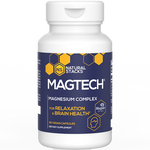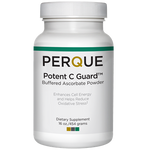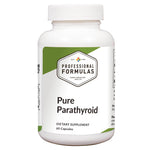There are many delicious and nutritious vegetarian protein options available to ensure you get enough protein in your diet.
A vegetarian diet is designed to promote health. Unfortunately, many vegetarians do not consume the recommended daily allowance of protein. Instead of including ample nutritious protein sources in their diets, many vegetarians eat too many carbohydrates.
When an individual's diet primarily consists of carbohydrates, they are at an increased risk of weight gain. Furthermore, this type of diet can negatively impact their health. If you are following a vegetarian diet and are concerned you are not getting enough protein, we have you covered. Follow the suggestions below to ensure your body receives the correct protein.
-
Chia—Chia seeds have been touted as a superfood. Each tablespoon contains 2 grams of protein and 4 grams of fiber. This delicious, vegetarian-friendly seed is a great way to increase protein consumption.
In addition, these powerhouses contain eight essential amino acids and a variety of trace minerals. This powerful antioxidant-rich food contains more omega-3 fatty acids than a serving of walnuts, twice as much magnesium and iron as a serving of spinach, and as much calcium as a serving of milk.
You can increase protein intake by sprinkling chia seeds on your salad, mixing them in your morning smoothie, or making delicious chia seed pudding.
-
Edamame - Edamame is green soybeans. A half-cup of edamame contains 11 grams of protein and nine essential amino acids. If you are looking for a way to increase your protein intake, edamame is a great option.
Additionally, edamame contains a plethora of vitamins and minerals. This delicious soy product includes over 100 percent of the daily recommended allowance of folate, half the vitamin K you need, and over 79 percent of the recommended daily allowance of manganese.
There are several ways to incorporate edamame into your diet. You can eat it as a snack, turn it into a delicious dip similar to guacamole, add it to your favorite salad, or include it in fried rice.
-
Hemp Seed - Hemp seeds come from the Cannabis Sativa plant. Three tablespoons of hemp seeds contain approximately 9.5 grams of protein and nine essential amino acids.
In addition, a serving of hemp seed provides 3.5 grams of zinc and half the daily recommended amount of magnesium. Each serving also contains 1.2 grams of fiber, potassium, vitamin E, B vitamins, and iron.
Hemp seeds can easily be incorporated into your diet. You can blend water and hemp seeds to create hemp seed milk, which can be used as a dairy alternative. The milk can also be added to salads, soups, pasta, granola, or cereal.
-
Hummus - Hummus is made from ground chickpeas. A one-cup serving of hummus provides 19 grams of protein.
Hummus also provides 33 percent of the recommended daily value of iron. It is also packed with folate, magnesium, phosphorus, and copper.
Hummus can be used as a dip for vegetables, chips, or fruit, spread on wraps or sandwiches, and as a delicious sauce for pasta or salad dressing.
- Lentils are packed with proteins and fiber to help you stay healthy. A quarter cup of uncooked lentils contains less than 170 calories but supplies 12 grams of protein, making them the perfect choice for those watching their weight while wanting to increase their protein intake.
Lentils can be added to soups to increase the protein content of your meal, to salads to provide flavor, texture, and nutrition, or mixed with rice to create a delicious and filling baked main course.
-
Peanut Butter—Most people enjoy a peanut butter sandwich from time to time; however, many do not realize that this delicious spread is packed full of protein. Each 2-tablespoon serving contains 8 grams of protein.
Each serving of peanut butter also contains vitamin E, niacin, and manganese. Peanut butter is a versatile protein enjoyed in sandwiches, smoothies, sauces, or desserts. If you are trying to increase your protein intake, increase the amount of peanut butter you eat.
-
Quinoa - A one-cup serving of quinoa provides 8 grams of protein and only has 222 calories, making it a diet-friendly option.
Quinoa is a wholesome grain filled with magnesium, phosphorus, and manganese. It is delicious and can be easily incorporated into your meal plan. Like rice, quinoa can be served as a delightful side, enjoyed as a breakfast cereal, or added to your favorite salad.
-
Seitan -Seitan is the meaty portion of wheat that contains protein. A three-ounce portion contains 21 grams of protein and is a great alternative protein source for vegetarians.
Seitan contains loads of fiber and no saturated fat, making it an excellent option for those trying to lose weight. This vegetarian protein can be used as a meat substitute, added to soups or stews, or enjoyed in casseroles or stir-fries.
-
Sunflower Seeds—Athletes often enjoy sunflower seeds. Each one-cup serving provides 23 grams of protein, making them the perfect snack for on-the-go. Additionally, they are packed with vitamins and minerals, including pantothenic acid, folate, iron, and zinc.
Sunflower seeds are delicious in yogurt, ice cream, salads, stir-fries, and baked goods, including muffins, breads, crackers, and bagels. They also add a crunchy crunch to salads.
-
Tempeh—Tempeh is typically made from fermented soybeans but can also be made from various beans, grains, or seeds. This vegetarian-friendly meat alternative provides 20 grams of protein, 222 calories, and 12 grams of fiber in a 4-ounce serving.
Tempeh can be enjoyed in stir-fries or sandwiches or as a substitute for ground beef in chili or spaghetti sauce.
-
Tofu—Tofu is another meat alternative that is loaded with protein. One ounce of tofu contains 5 grams of protein and only 76 calories.
Tofu is very versatile and can be enjoyed in various ways. For breakfast, you can use it in place of eggs, add it to soups or stews, or deep fry it for a crispy snack.
-
Kale—Traditionally, kale was used only as a garnish; however, over the years, people have learned how delicious and versatile it is. Kale is also packed with nutrients. Each serving provides 2 grams of protein, over 600 percent of the recommended daily amount of vitamin K, 200 percent of vitamin A, and 134 percent of vitamin C.
Kale is a delicious green in salads, soups, stews, and side dishes. It can also be crisped in the oven to create delightful kale chips.
-
Spinach - Popeye had it right by eating spinach to stay healthy and strong. One cup of canned spinach provides 5 grams of protein and over 300 percent vitamin A.
Spinach can be juiced for a delicious and nutritious drink. It can be added to your salads, stir-fries, or soups. Spinach can also be enjoyed in eggs, puréed to create a delicious pesto for your pasta, or used on sandwiches in place of lettuce.
-
Broccoli - One cup of broccoli florets contains 2 grams of protein, over a hundred percent of the daily value of vitamin C, and is only 20 calories.
Broccoli is a versatile vegetable that can be enjoyed raw, steamed, used in soups, casseroles, pasta, or added to salads. Broccoli can be pan-fried, baked, roasted, or steamed.
-
Avocados—Avocados are filled with omega-3 and omega-6 fatty acids and 5 grams of protein. They are also loaded with folate and vitamin C. This healthy fruit is delicious and provides 16 grams of fiber.
Avocados can be enjoyed on toast for a nutritious breakfast, added to salads, substituted for mayonnaise, or used to create guacamole. You can also slice one up and enjoy it on your sandwich.
Being a vegetarian does not mean you have to sacrifice your protein intake. There are many delicious and nutritious vegetarian protein options available. Use the protein sources listed above to help ensure you get enough protein in your diet. You can also substitute a high-quality protein powder from Metagenics for your protein requirement.
























